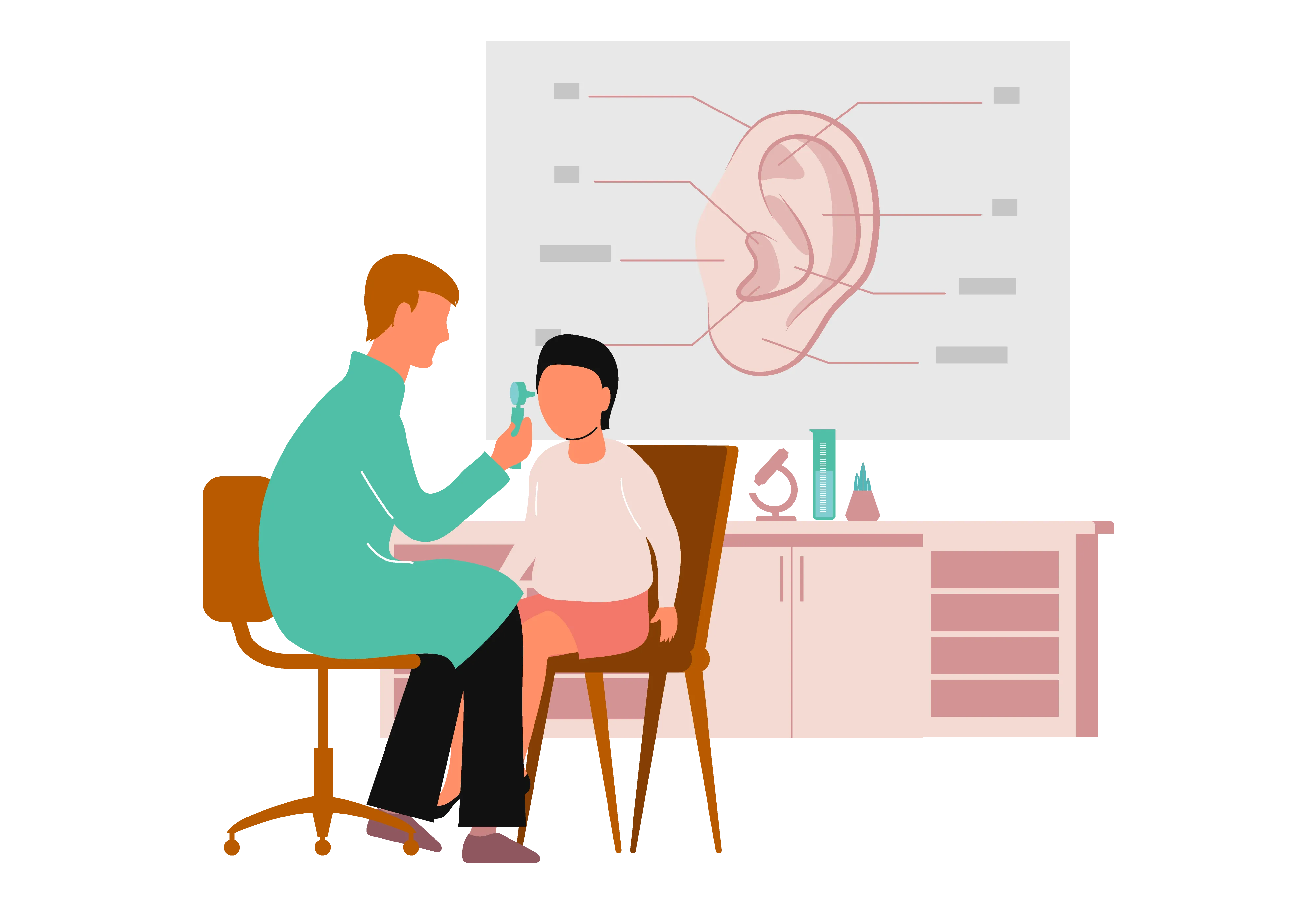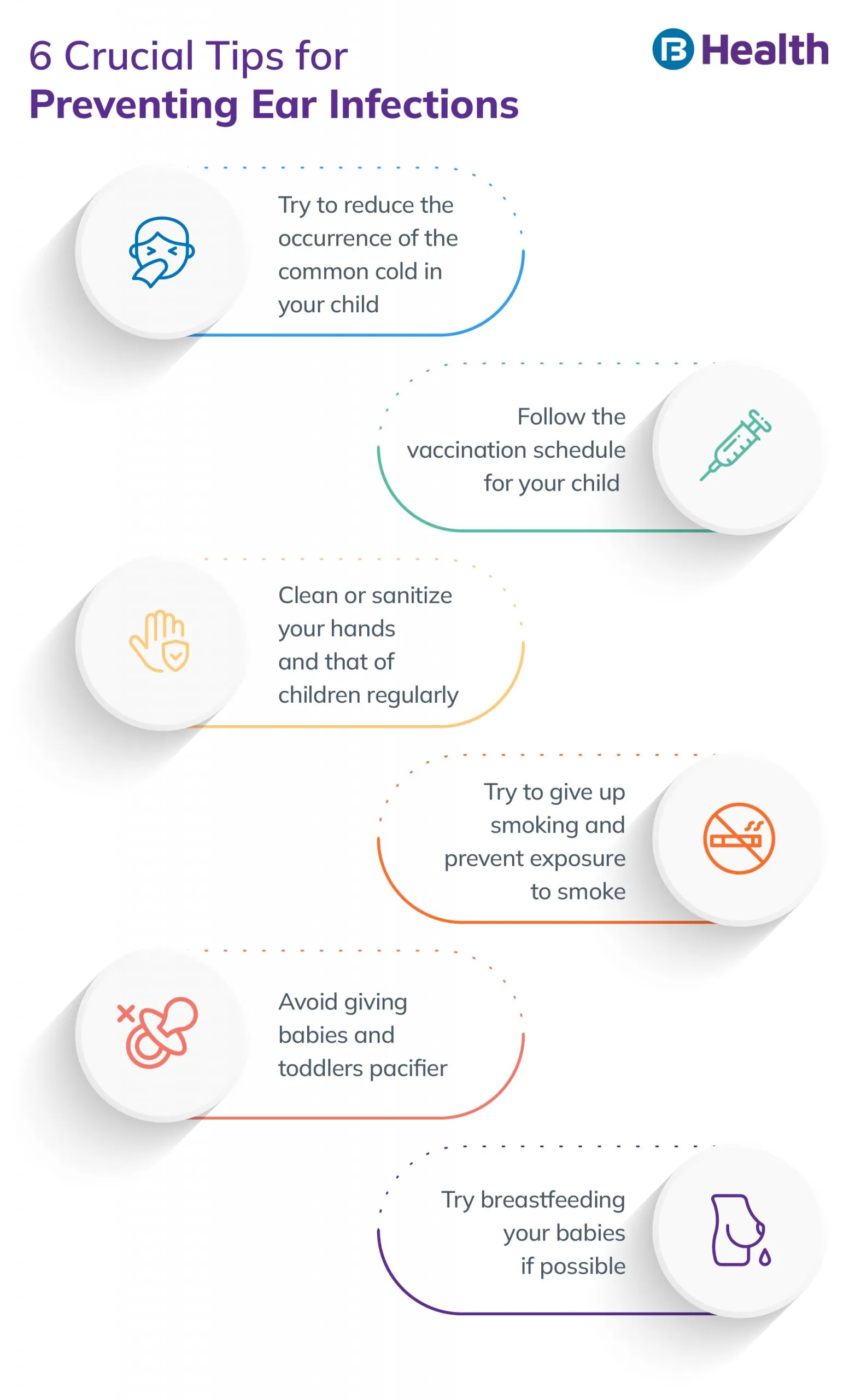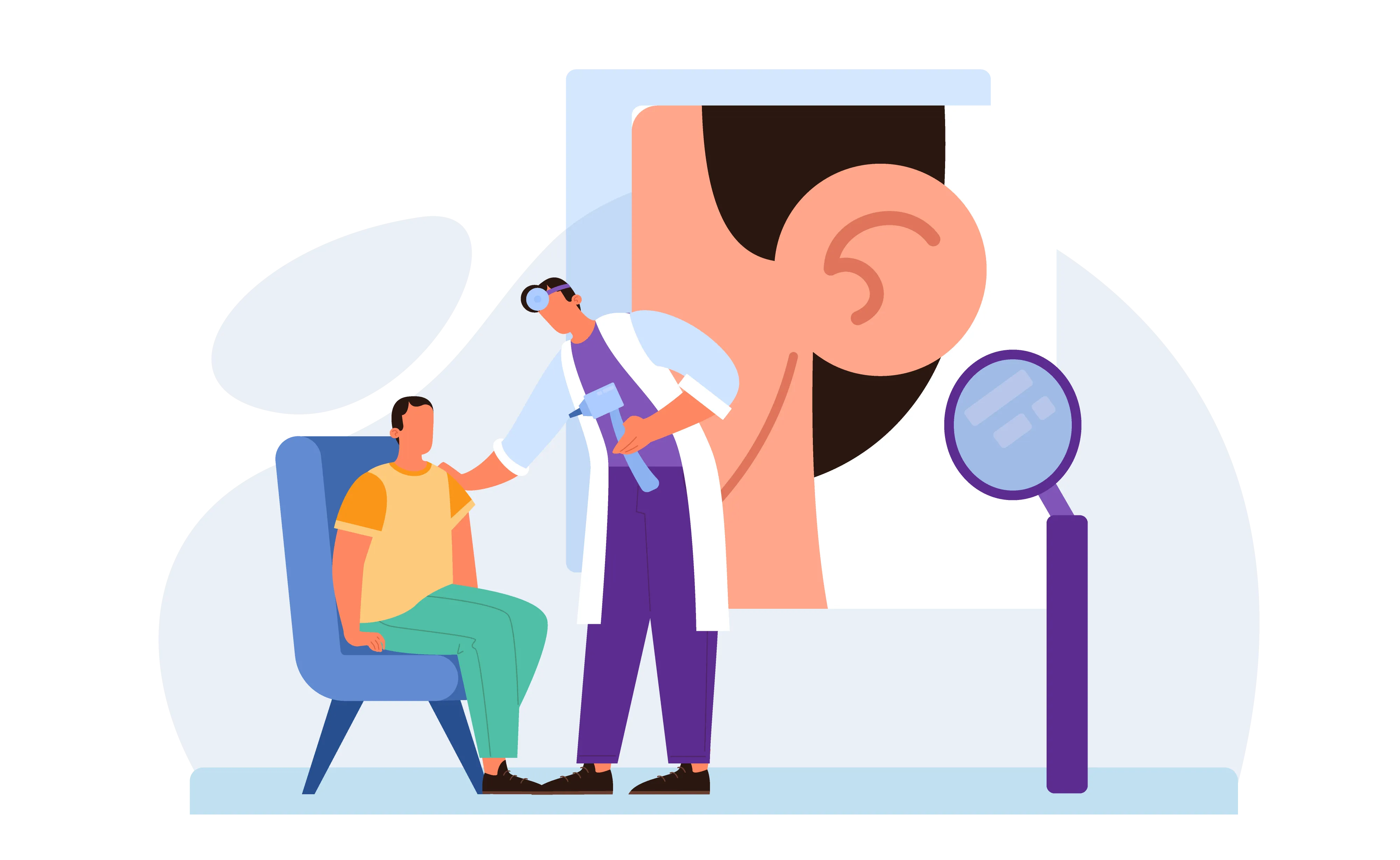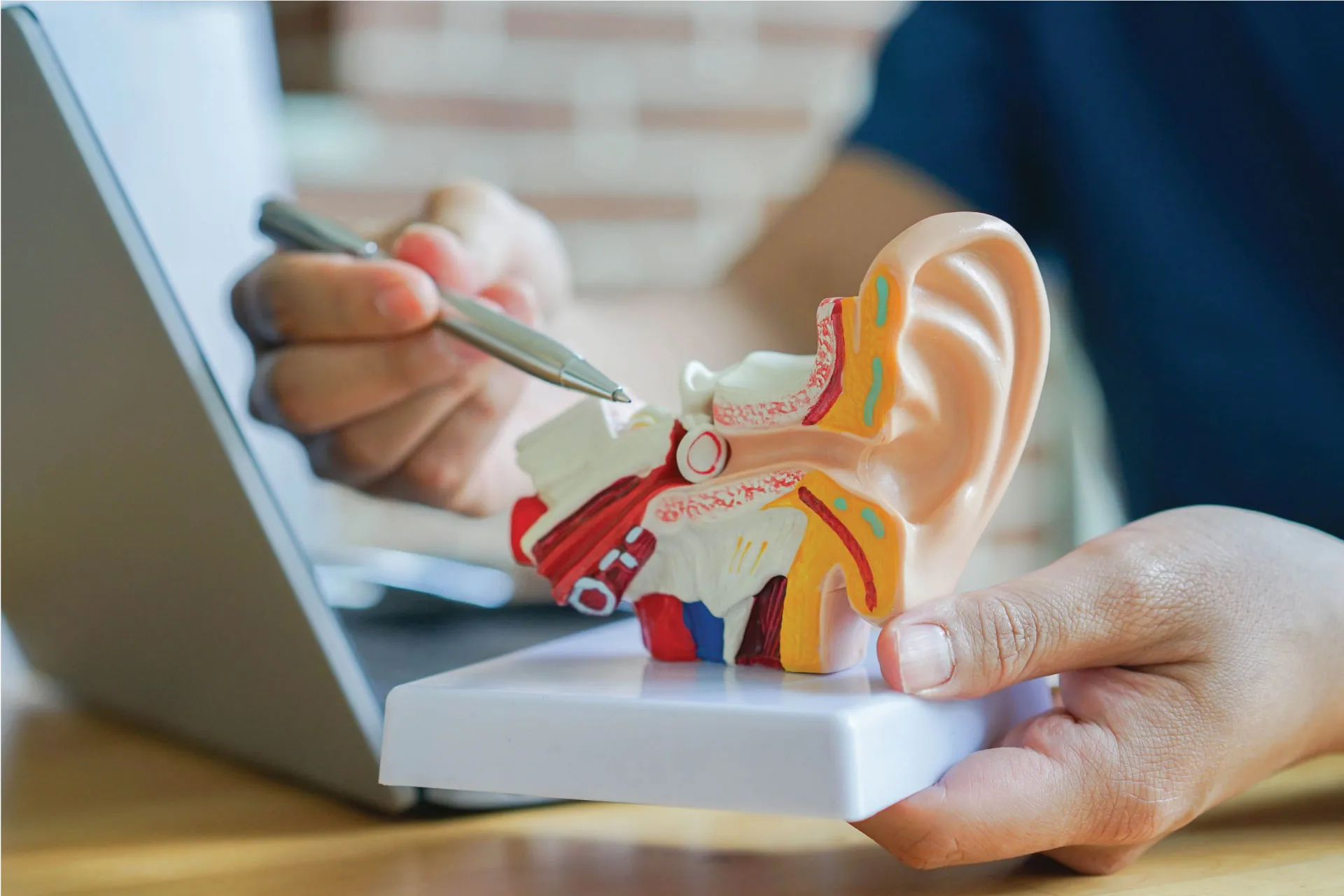ENT | 6 min read
Ear Infections: Symptoms, Causes, Diagnosis and Treatment
Medically reviewed by
Table of Content
Synopsis
When there is an ear pain and infection, you get restless and experience discomfort. Ear infections can affect your middle, inner or outer ears. To know about ear infection treatment regime, read on.
Key Takeaways
- Bacteria and viruses are main causes of ear infections
- Ear pain and infection in your ear are its common symptoms
- Application of ear drops is an ear infection treatment method
Ear infections can be painful and even cause you to experience imbalance. They usually affect your middle ear, outer or inner part of the ear. Usually, ear infections symptoms occur because of viruses or bacteria. When a virus or bacteria infects your ear fluid, this causes ear infections. While ear infections are common among children and adults, these are the main reasons for ear pain in children.
Due to severe ear pain and infection, your eardrum becomes swollen. Ear infection treatment involves antibiotics and other medicines to ease the pain and fight infection.
If you neglect ear infections, these may even lead to hearing issues or other complications. However, with timely ear infection treatment, adults and children can get quick relief from ear pain and infection.
According to a study, ear infections affecting the middle ear are common among young children between 6-24 months of age. Before children start their schooling, approximately 80-90% are at risk of middle ear infections [1]. Another report reveals that around 709 million children below five years of age acquire middle ear infections [2]. Some of the most common symptoms in children suffering from middle ear infections include the following.
- Fever
- Severe pain in the ear
- Minor issues with hearing
- Low energy

In adults, earphone usage for a prolonged period may result in ear infections, as per a report. A few common symptoms noted here include the following.
- Poor concentration
- Discharge of watery fluid from the ear
- Dizziness
- Earaches
- Fever
- Persistent headaches
By following an ideal ear infection treatment, adults and kids can overcome these symptoms and lead healthy lives. While symptoms of acute ear infections occur only for a short period, chronic ear infections can constantly keep recurring and causing you discomfort. To know more about ear infections, their symptoms, and ear infection treatment, read on.
Ear Infections Symptoms
Mild ear infections get resolved on their own. However, your doctor may prescribe certain pain killers to relieve your ear pain and infection. In case of severe ear infections, you have to take antibiotics. Here are the most common symptoms of ear infections that occur in children and adults.
- Headaches
- Fever
- Restless behavior
- Poor appetite
- Lack of balance and dizziness
- Constant itching that makes your rub your ears frequently
- Increased pressure buildup in your ear
- Pus formation in the ear
- Discomfort due to ear pain and infection
Ear infections last for a week or more, depending on their severity. Make sure to follow the ear infection treatment plan properly for effective relief against ear pain.

Ear Infections Causes
If you are prone to any allergy, flu, or cold, you have a higher chance of developing ear infections. The congestion in your nasal passage and throat causes ear infections. Tiny tubes in your ear connect the ear to the backside of your throat. Any block in these tubes results in fluid accumulation of your middle ear. A few common reasons for blockage in these tubes include the following.
- Sinusitis
- Smoking
- Air pressure differences
- Presence of excess mucus
- Allergy
- Common cold
In case of an adenoid gland infection, you may get ear pain. This is because adenoid glands are behind the nose and help ward off infections. If these glands get affected, it results in ear infections.
There are various risk factors that can increase the incidence of ear infections.
- Bottle-fed babies are more prone to ear pain and infection than breastfed kids.
- School-going children get ear infections more frequently than kids who stay at home.
- Kids between 6 months and two years are more prone to ear infections due to developing immune systems.
- Individuals with seasonal allergies develop ear infections frequently.
- Increased pollution can cause ear infections.
- Children with cleft palate conditions acquire ear infections quickly.
- Constant exposure to smoke can make you prone to ear infections.
Additional read: Effective Dust Allergy Remedies
Ear Infections Diagnosis
Using an otoscope, your ENT specialist may examine your ears. Your doctor will check for any redness or fluid formation in your middle ear. Further, your eardrum may be examined for any bulge or perforation. In extreme pain, you may undergo a few additional tests, such as:
- Hearing test
- CT scan to assess the spread of infection
- Acoustic reflectometry to check your sound reflection and fluid content in the ear
- Tympanometry to measure air pressure changes in the ear
- Blood tests to check your immunity levels

Ear Infections Treatment
For mild ear infections, you can follow simple home remedies as a part of the ear infection treatment regime. Few measures for easing your ear pain and infection include the following.
- Applying ear drops to relieve your pain
- Placing a warm cloth near the ear
- Taking pain relievers like ibuprofen
- Using decongestants
In case of severe ear infections, your ENT specialist may prescribe antibiotics for the infection to subside. However, if a virus is the main cause of your ear infection, these antibiotics may not work. To get effective results in ear infection treatment, adults and children are treated using a wait-and-see technique.
Overdosage of antibiotics may result in antibiotic resistance. So, only when your symptoms start to worsen, you'll be put on antibiotics. Your specialist may consider surgery if your symptoms of ear infections do not get better despite following a systematic ear infection treatment regime. Ear tubes may be placed in your ears surgically to extract the excess fluid from your ears.
If you are suffering from ear pain, take proper precautions and meet a doctor if symptoms do not subside. As you already know, the causes of ear infections and ear infection treatment, adults and children can be treated immediately for instant relief from any pain. For professional advice, you may connect to reputed ENT specialists on Bajaj Finserv Health. Get a doctor's consultation and address your symptoms without any delay. Any infections concerning your ears, nose, and throat, such as tonsillitis or hearing loss, can be resolved effectively. Follow your doctor's advice meticulously to recover sooner! If you want to protect yourself from any disease, you can avail of health insurance.
References
- https://www.ncbi.nlm.nih.gov/books/NBK470332/
- https://www.omicsonline.org/india/ear-infection-peer-reviewed-pdf-ppt-articles/
Disclaimer
Please note that this article is solely meant for informational purposes and Bajaj Finserv Health Limited (“BFHL”) does not shoulder any responsibility of the views/advice/information expressed/given by the writer/reviewer/originator. This article should not be considered as a substitute for any medical advice, diagnosis or treatment. Always consult with your trusted physician/qualified healthcare professional to evaluate your medical condition. The above article has been reviewed by a qualified doctor and BFHL is not responsible for any damages for any information or services provided by any third party.



